
Michael Carroll
Professor of Pediatrics, Harvard Medical School
PCMM, Boston Children’s Hospital
Co-director, MMSc in Immunology, Harvard Medical School
Email: Michael.carroll@childrens.harvard.edu
Dr. Michael Carroll received his Ph.D. in Immunology from the UT Southwestern Medical School (Dallas, TX) under the direction of Dr. J. Donald Capra; subsequently, he trained with Dr. Rodney R. Porter in the Biochemistry Department, Oxford U (Oxford UK). In 1985, he was appointed an Assistant Professor in Pediatrics and the Department of Biological Chemistry at the Children’s Hospital/Harvard Medical School. He was promoted in 1998 to the rank of Professor of Pediatrics, Harvard Medical School and Senior Investigator, Boston Children’s Hospital, Program in Cellular and Molecular Medicine.
Dr. Carroll served as Director of the Harvard Graduate Program in Immunology from 2005 – 2016. Early in his career, he was an American Arthritis Foundation Fellow and Investigator and later a recipient of a Pew Scholar award. He is a recipient of the 2016 Research Award by National Alliance for Mental Health.
A major focus of his research is understanding how autoreactive germinal centers are regulated; and how peripheral autoimmunity can affect neuropsychiatric behavior. Moreover, his research includes understanding how changes in the regulation of the complement system in the brain can underlie diseases such as schizophrenia.
Staff
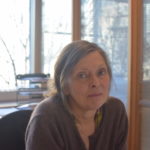
Elisabeth Carroll
DPharm University Paul Sabatier Toulouse, France
Administrative assistant
Lab manager
Email: Elisabeth.carroll@childrens.harvard.edu
Postdoctoral Fellows
Yingying Zhang
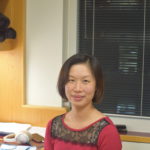
PhD in Molecular and Cellular Biology, Harvard University
Email: yingying.zhang@childrens.harvard.edu
By applying a newly developed technology called MERFISH (Multiplexed Error Robust Fluorescent in-situ Hybridization), I am interested in addressing the following questions: 1) which brain cell types express complement components? 2) where in the brain and when during development are they expressed? 3) how does C4 deficiency or C4 overexpression affect the transcriptional landscape in the mouse brain? The ultimate goal is to understand the role of C4 and the complement pathway during brain development and how mechanistically C4 overexpression can contribute to schizophrenia
Chunzhu Song

Ph.D. in Biological Sciences from Vanderbilt University Nashville TN
Email: chunzhu.song@childrens.harvard.edu
I will focus on identifying cellular and molecular mechanisms of TFN-I-related synaptic elimination and behavior changes in the CNS of a lupus model.
Ajitanuj Rattan

PhD
Email:ajitanuj.rattan@childrens.harvard.edu
Generation of autoantibodies by auto reactive B cells is one of the major hallmarks of autoimmunity. Apoptotic cells are major source of autoantigens and inefficient clearance of apoptotic cells is central to activation of auto reactive B cells. I am interested in understanding the role of a newly identified complement receptor, NRP1 (CD304) in apoptotic cell clearance (immune complexes) and its implication in regulation of autoimmunity.
Kristine Oleinika
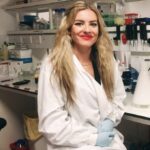
PhD in Immunology – University College London (UCL)
Email:kristine.oleinika@childrens.harvard.edu
Activated B cells can participate in the extrafollicular or the germinal center response, which differ in their functional output. I am interested in understanding the molecular cues and cellular interactions that guide B cell fate decisions following activation. It remains unclear to what extent overlap exists between pathways that contribute to autoimmunity and protective immunity (such as in response to infection or vaccination). Enhanced understanding of this may allow to design improved intervention strategies for autoimmunity.
Graduate students
Yi Dan (Danni) Zhu
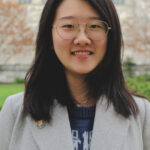
PhD student in Virology. Harvard University
Email: yidan.zhu@childrens.harvard.edu
I am interested in understanding the mechanisms behind persistent autoantibody production in SLE and how innate immune sensors regulate autoreactive memory B cell activity.
Stacie Lin
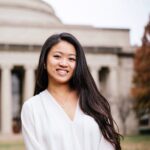 PhD student in Immunology, Harvard University
PhD student in Immunology, Harvard University
Email:stacie.lin@childrens.harvard.edu
I am interested in immune mediators localized to the meninges and blood brain barrier driving neurological manifestations in autoimmunity and infection.
Technicians
Diana Pascual
Animal Technician
Email:diana.pascual@childrens.harvard.edu
Yilin Guan
Research Assistant III
Email:yilin.guan@childrens.harvard.edu
Students
Finley Lord
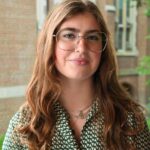 Undergraduate student Emmanuel College Boston
Undergraduate student Emmanuel College Boston
Email:finley.lord@childrens.harvard.edu
Rescuing schizophrenia-like phenotypes by inhibiting complement overactivation in a mouse model.
Selma Mouftakir
MD student Karolinska University Stockholm
Ha Lee
Undergraduate student Harvard University Boston
Former Lab Members
Ming Zhang PhD
Rob Barrington PhD
Ama Agyemang MD/PhD
Isaac Chu PhD
Matt Woodruff PhD
Young-A Kim PhD
Michael Kulinoski PhD
Lisa Pitcher PhD
Santiago Gonzalez PhD
Melissa Turman PhD
Prya Chatterjee PhD
Kaysa Prokopec PhD
Caroline Herndon PhD
Blandine Mercier PhD
Nishant Dwivedi PhD
Joseph O’Flynn PhD
Esteban Fernandez PhD
Jessica Perego PhD
Balthasar Heesters PhD
Fahd Al Quresha
Dan Firl MD
Soren Degn PhD
Abhishek Das PhD
Jonatan Chang PhD
Jessy Presumey PhD
Cees van der Poel PhD
Lea Simoni PhD
Theo van den Broeck MD/PhD
Ernest Aw PhD
Carlos Castrillon PhD
Siti Rahmayanti MD
Esra Yalcin PhD
Kristian Savstrup Kastberg